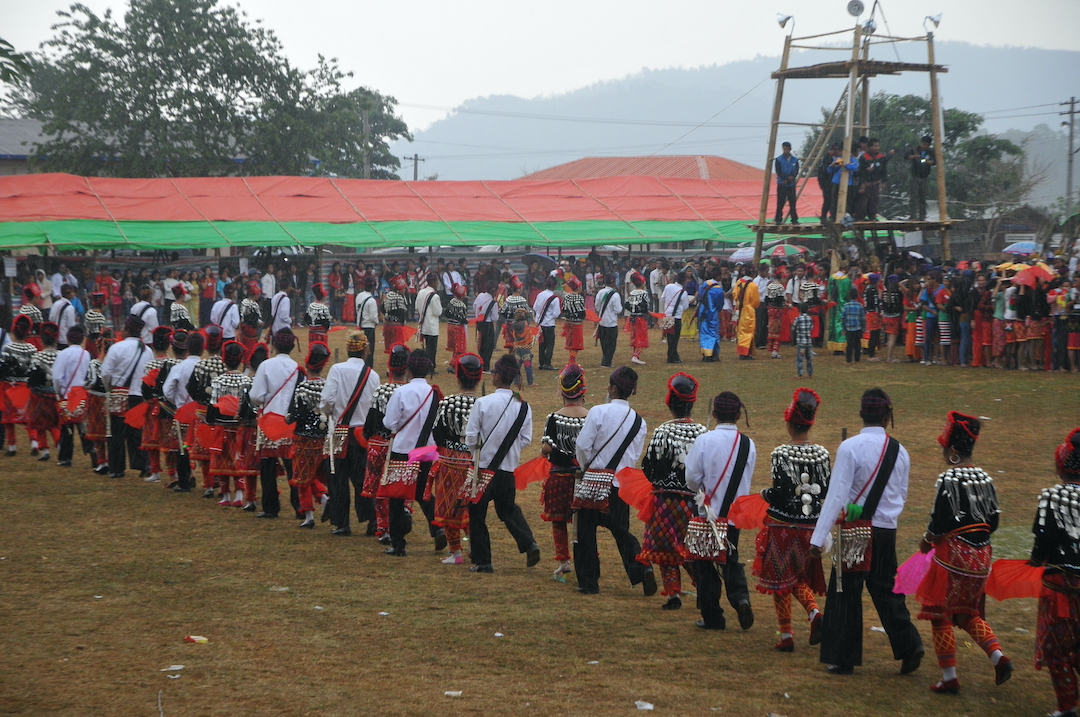|
|
|
As conflict and military rule continue, Mumyit Sinli Pukdun argues that a major rethink in international aid is essential with a focus on civil society which is at the heart of community resilience and support for national change. Lessons need to be learned from the failed donor policies of the past three decades. Not only has the nature of political challenges been misunderstood but many international agencies have also followed aid policies that have undermined local capacity and organisations. In Myanmar’s latest cycle of state breakdown, support to civil society is vital to address emergency needs and socio-political transformation in the long term.
These commentaries are intended to contribute to a broader understanding of the many challenges facing the country and its peoples.
See the complete list of all the Myanmar commentaries.
|
|
|
|
The Time for Change in International Aid: The Importance of Civil Society
A Myanmar Commentary by Mumyit Sinli Pukdun
|
|
 Kachin youth manao ceremony, northern Shan State / Photo credit TNI
Kachin youth manao ceremony, northern Shan State / Photo credit TNI
|
|
|
Recently, a call by an international human rights organisation has been circulating online. Dated August 2015, it states: “Any human rights defender or organisation who is facing risks because of her/his human rights work and needs emergency support may send an application for an emergency grant.” There then follows an email address where applications can be sent.
The statement is clearly out of date. So why is it circulating now? Is it to help promote conversation? Is it a sign of activists facing hardship in their struggles for political change? Or could it be reflection of the sheer numbers of people leaving the country seeking ways to survive? As a new generation of exiles develops, their flight brings back many memories of 1988 when a similar exodus of people took place following the suppression of pro-democracy protests by a previous military regime.
This experience has prompted many discussions, comparing then and now, and I have been talking with older friends and colleagues. Many cannot forget that there were also calls for help during the previous cycle of military rule when there appeared to be international sympathy for the sufferings in our country. Didn’t we make repeated appeals to international organisations for support as our struggle for freedom continued through the 1990s? Sadly, the political crisis in our country is not new.
And this is where many observers feel uneasy. Yes, there was international support during this earlier time. But whether inside the country or around its borders, wasn’t this largely targeted by Western governments and donors at helping the National League for Democracy (NLD), many of whose members had been arrested or gone underground? Over the following years, this saw the emergence of such bodies as the National Coalition Government Union of Burma and Members of Parliament Union which were feted in Western capitals around the world. Certainly, they were in need. They were not, however, the only people suffering and, in many cases, their activities were based abroad.
Into the 21st century, imbalanced – and often paradoxical – aid structures developed as many actors in the West continued to misread the situation. While international attention largely focused on sanctions, Myanmar became an “aid orphan”. Humanitarian relief was mostly concentrated on health within the country or refugee camps abroad (mainly along the Thai border), while political support went to the NLD, democracy exiles and movements centred among the Bamar-majority population. In contrast, there was tangibly little support for those that remained inside the country in the front-line of struggle under military rule – most obviously, community-based groups and ethnic nationality organisations, many of which were providing sanctuary to the democracy exiles.
In defence of these decisions, it was often said that there were “no alternatives”, civil society was “dead” or that aid could not be provided in areas that were under the control of ethnic armed organisations (EAOs), whether they were in ceasefires with the military regime or not. But such simplifications failed to understand the trends and dynamics in national politics and society. With strong traditions around cultural and faith-based movements, the 1990s saw the fastest decade of growth in non-governmental groups in Myanmar’s history, while a diversity of ethnic nationality movements continued to administer large territories around all the country’s borders. Military rule continued but the spirit and determination of the people remained strong.
|
|
|
|
|
|
|
|
|